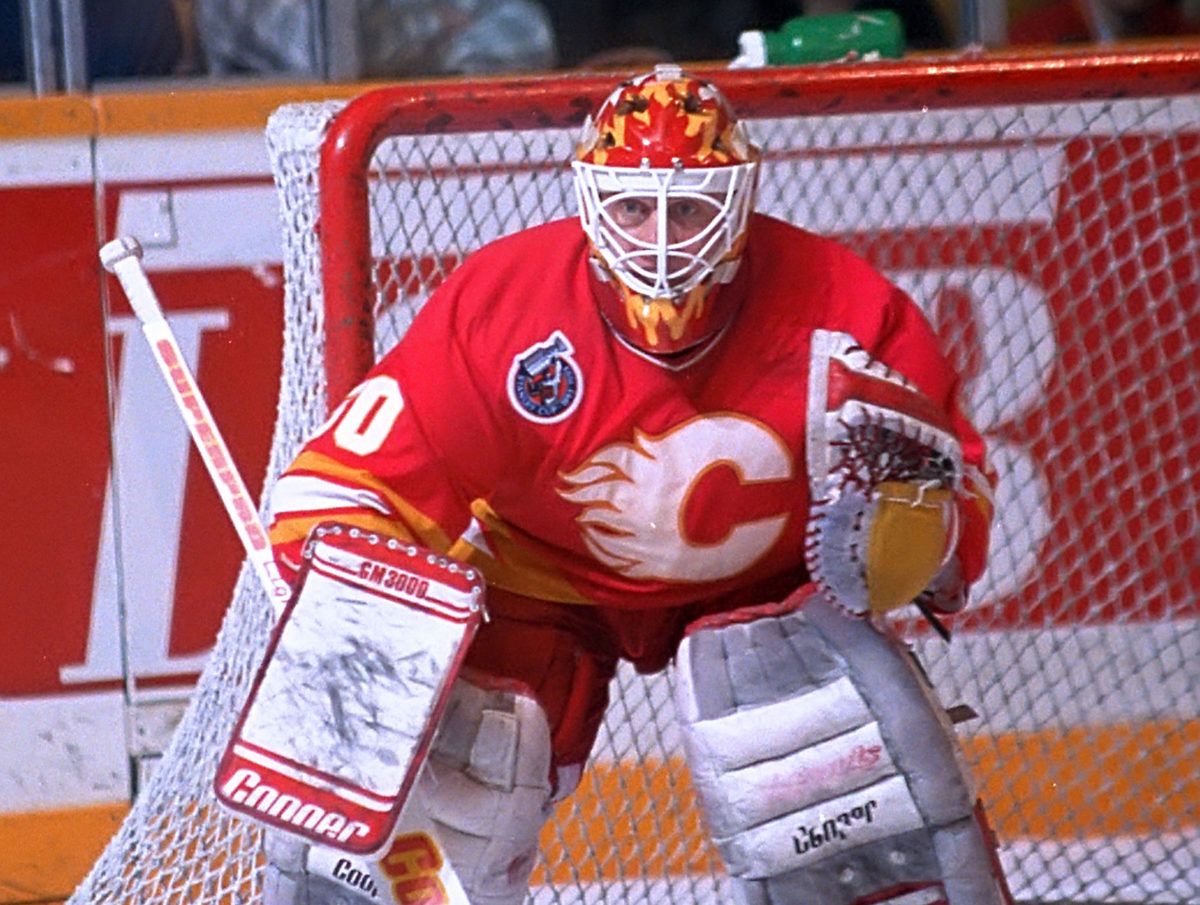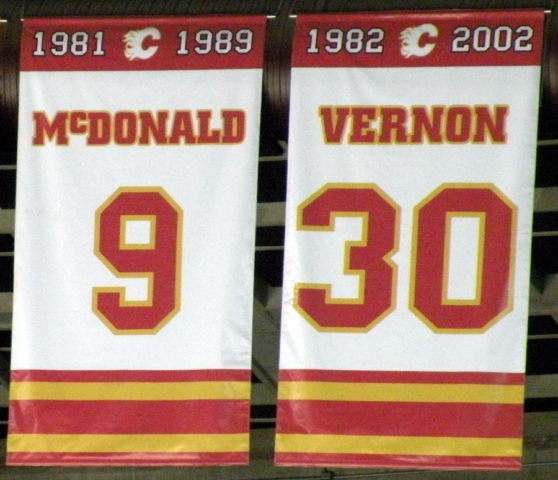The Hockey Hall of Fame stands as a testament to the greatest individuals who have each left an indelible mark on the hockey world. Eligible since 2005, on Wednesday afternoon, Mike Vernon had finally been recognized by the Hockey Hall of Fame as a member of the Class of 2023. Inducted alongside Vernon and joining the elite few enshrined within its hallowed walls were Tom Barrasso, Caroline Ouellette, Henrik Lundqvist and Pierre Turgeon in the player’s category as well as Ken Hitchcock and Pierre Lacroix in the builder’s category.

Born on Feb. 24, 1963, in Calgary, Alberta, Vernon played his entire youth in the Calgary minor hockey system. His talent and dedication were evident during his junior years, playing for the Calgary Canucks of the Alberta Junior Hockey League (AJHL) in 1979-80 and for the Calgary Wranglers of the Western Hockey League (WHL) from 1980-83. On loan from the Wranglers, he joined the Portland Winter Hawks, who were hosting the 1983 Memorial Cup. Winning all three games he started, he led the Winter Hawks to the championship. He was named recipient of the Hap Emms Memorial Trophy as the most valuable goaltender of the tournament, while the Winter Hawks became the first American team to win the Memorial Cup.
Early Career and Rise to Prominence
Vernon was selected 56th overall by the Calgary Flames in the third round of the 1981 NHL Entry Draft. He quickly established himself as a formidable goaltender, making his two-game NHL debut during the 1982-83 season. At only 5-foot-9 and weighing 167 pounds, he exhibited exceptional skill, athleticism, and an unwavering competitive spirit. In his first full NHL season, 1985-86, he played a pivotal role in propelling the Flames to the Stanley Cup Final, where they fell just short of a Stanley Cup victory, eventually succumbing to the Montreal Canadiens.
Stanley Cup Triumphs and Playoff Dominance
Vernon’s legacy shines through his remarkable performances in the Stanley Cup playoffs. In the 1988-89 season, he played an instrumental role in guiding the Flames to their first-ever Stanley Cup championship. His exceptional performance and ability to make game-changing saves propelled the Flames to victory, cementing his status as one of the game’s elite goaltenders.
Related: One for the Ages
In the following decade, Vernon’s postseason prowess continued to astound. After joining the Detroit Red Wings in 1994, he helped them reach the Stanley Cup Final in 1995 and 1997. He was named the winner of the Conn Smythe Trophy as playoff MVP in 1997, as the Red Wings swept the Philadelphia Flyers to win their first Stanley Cup Championship since 1955. His playoff success is further highlighted by his remarkable 77 wins, ranking him fifth among the all-time leaders in postseason victories.

Moreover, his impact extended beyond the Flames and Red Wings. Following his time in Detroit, he played briefly with the San Jose Sharks and Florida Panthers. Vernon was traded back to the Flames in 2000. Sporting number 29 instead of his usual 30 (later retired by the Flames), he appeared in 59 more games with his hometown team over the next two seasons. He announced his retirement from the Flames and hockey on Sept. 13, 2002.
Individual Accolades and Contributions
Vernon was selected to play in five NHL All-Star Games and represented Canada internationally, winning a bronze medal at the 1983 World Junior Championship and a silver medal at the 1991 World Cup of Hockey. He shared the William M. Jennings Trophy with Chris Osgood in 1996. Vernon’s contributions extended beyond the ice as a respected leader and mentor to younger players, epitomizing the qualities of professionalism and dedication.
Related: William M. Jennings Trophy Season
Vernon’s induction into the Hockey Hall of Fame is a testament to an exceptional career, remarkable achievements, and enduring legacy. His unwavering determination and remarkable performances during the regular season and playoffs earned him recognition as one of the game’s all-time greatest goaltenders. From his early years with the Flames and his Stanley Cup triumphs with both the Flames and Red Wings to his contributions with the Sharks and Panthers, he left an indelible mark on every team he represented. Beyond his on-ice success, his leadership and sportsmanship make him a worthy inductee into the Hockey Hall of Fame. As his legacy continues to inspire future generations of players, his enshrinement serves as a celebration of his exceptional career and contributions to the sport of hockey.